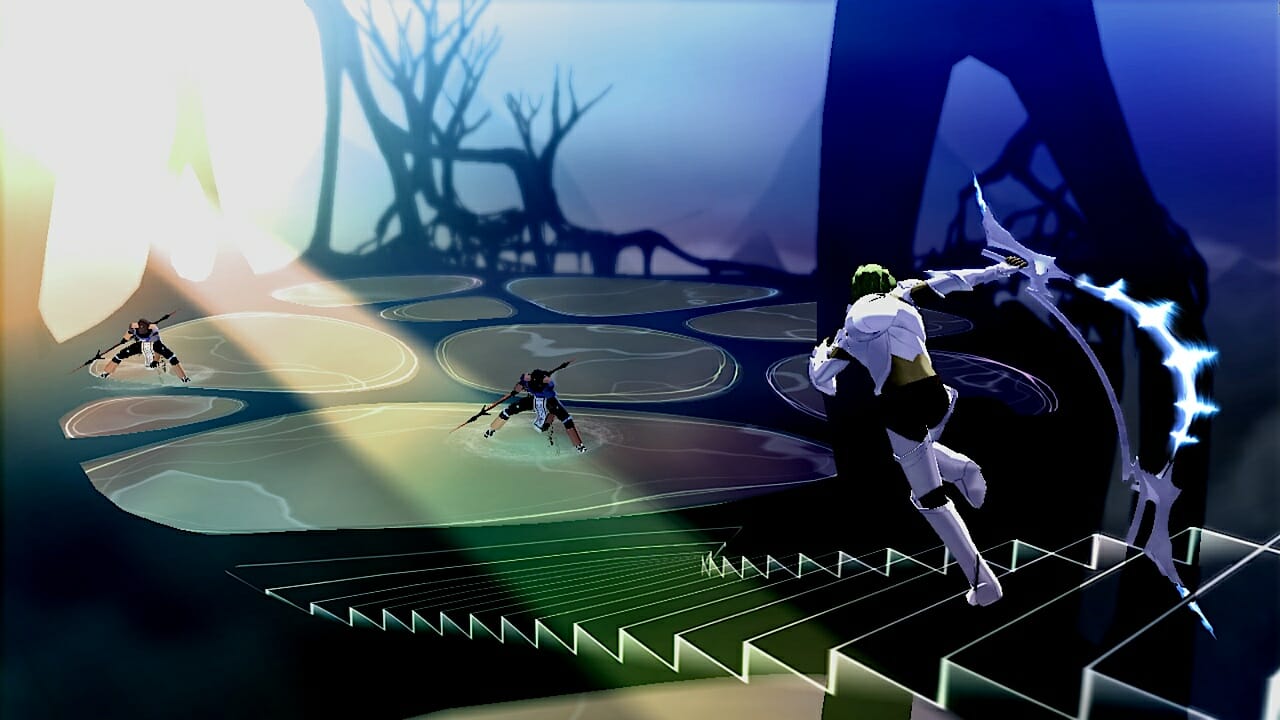El Shaddai: Ascension of the Metatron (Multi-platform)

El Shaddai’s visual design is a staggering achievement that maintains its sense of majesty and awe.
It seems like every six months a new triple A title comes out that the gaming press hails as the new high-bar for videogame graphics. A few years ago it was Call of Duty 4: Modern Warfare, then it was Uncharted 2, next it’s… I don’t know… Modern Warfare 3? Battlefield 3? Uncharted 3? I’m sensing a pattern here.
The truth is I can’t tell the difference between the graphical fidelity of any of these games anymore. Sure, they look good, but most games these days look good. It’s something I take for granted. With all due respect to the uncanny realism of these titles, convincingly rendering dirt doesn’t exactly instill me with wonder.
It’s when games look truly inspired that I take notice. I’ve always preferred Okami’s cel-shaded painted paradise to whatever bloated behemoth produces the most polygons. Okami’s visual director Takeyasu Sawaki has a keen eye for elegant compositions and swirling colors. His follow-up, El Shaddai: Ascension of the Metatron, is his most striking work yet. Freed from the confines of feudal Japan, he takes the otherworldly planes of angels to new heights in this neo-Biblical adventure.

You play as Enoch, a scribe sent by god to reign justice upon seven fallen angels who’ve chosen to use their powers to aid mankind in constructing the tower of Babel. God considers this a false evolution for man, preferring they work for it by mowing the proverbial lawns that add character to our spoiled species. Unless you can clean up this mess, the big man upstairs will flood the whole planet (he’s kind of a jerk).
Each floor of the tower contains a unique vision representing that particular angel’s ideal world. This gives Sawaki carte blanche to craft some of the most varied and inspired visuals burnt to a disc. One moment you’ll be in a retro sci-fi futuristic utopia, the next in an abstract 2D painting filled with adorable hotdog-like gelatinous critters, then in an impossible structure built of what appears to be pointy metallic threads. Few of the environments even remotely resemble anything found in the natural world. There’s no forests, deserts, or snowy peaks. Instead it’s all ethereal abysses stretching out into the horizon. El Shaddai’s visual design is a staggering achievement that maintains its sense of majesty and awe.
Between all the sight-seeing, you spend much of your time engaged in third-person combat. Combos are based on timing and positioning more than complex button presses. Simply mashing the attack button will only dish out weak strikes, but taking a brief pause between presses results in a stronger assault.
Initially it feels awkward to slowly dole out attacks, and none of the more advanced moves or combos are explained to you. It doesn’t help that lengthy attack animations often leave you vulnerable and the auto-targeting is a little wonky. Despite these hurdles, combat eventually clicks and Enoch transforms from a spazzy scrapper to a graceful space age superstar ala Captain EO or Ziggy Stardust.

When the game switches to 2D platforming sequences it remains equally polished with smooth controls that remain consistent with the 3D segments. Wisely, the game’s three weapons grant different abilities outside of combat allowing you to hover, make a mid-air dash, or break weak walls depending on what’s equipped.